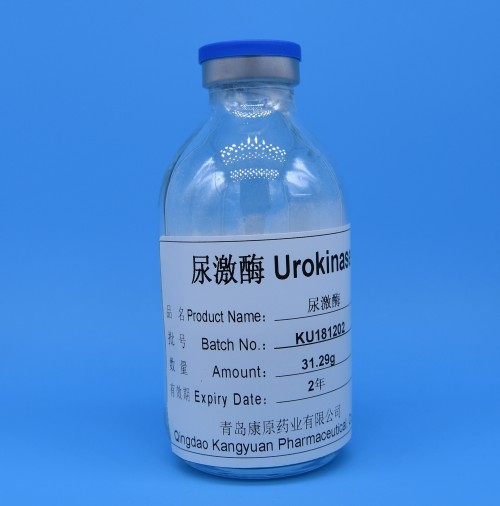Ulinastatin is a protein drug that is derived from human urine or other
animal sources, such as pigs or cows. It is a type of protease inhibitor that is
used for the treatment of inflammatory conditions and shock.
The manufacture of ulinastatin involves several steps, including protein
purification and formulation. The following is a brief overview of the
manufacturing process:
Collection of raw materials: The starting material for ulinastatin
manufacture is collected from either human urine or animal sources.
Purification: The raw material is purified using various methods such as
fractionation, chromatography, and ultrafiltration to obtain the desired
protein.

Formulation: The purified protein is then formulated with excipients and
stabilizers to create a stable drug product.
Quality control: The drug product is subjected to rigorous quality control
testing to ensure its purity, potency, and safety.
Packaging: The drug product is then packaged in sterile vials or cartridges
for distribution to hospitals and clinics.
Ulinastatin has been widely used in Japan and China for the treatment of
various conditions, such as acute pancreatitis, sepsis, and trauma. It has also
shown potential in the treatment of COVID-19 patients with severe respiratory
distress syndrome.
In conclusion, ulinastatin manufacture is a complex process that involves
several steps of protein purification and formulation. The resulting drug
product is subject to rigorous quality control testing to ensure its safety and
efficacy. The use of ulinastatin has shown promise in the treatment of various
inflammatory conditions and continues to be an area of active research.